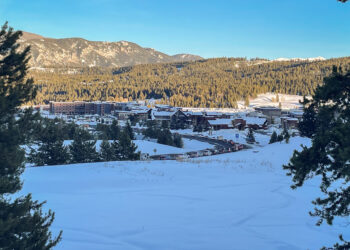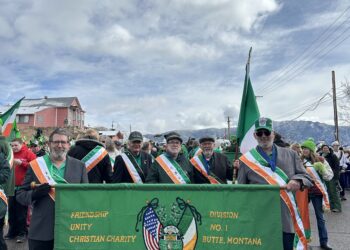
By Todd Wilkinson EBS Environmental Columnist
First, a digression: I completely get Elon Musk’s enthusiasm for a manned space mission to Mars, how it’s part of our DNA, humanity’s yen for going where no person has ever gone before. You know—to seek out new life and civilizations, to boldly paddle a kayak into the nethers of Uranus; the Star Trek kind of stuff.
And like you, I grasp the technological dividends resulting from investment in space travel and the unexpected insights divined just from trying to get there.
The Apollo program of the 1960s, which put us on the Moon (despite skeptics who said it cost too much and that we’d never succeed) resulted, for example, in the revolutionary digital gadgets we now hold in our hands. Our rallying around Apollo to achieve the nearly unthinkable galvanized a sense of national unity and pride that’s sadly lacking in today’s America.
Apollo was a Manhattan Project aimed at the cosmos. It helped transform the way we live on Earth. And it’s an example of how a major public/private investment in research and development—such as one, say, that would hasten game-changing advances in clean, renewable energy—would yield similar profound results. Finding scalable alternatives to fossil fuels pumping greenhouse gases into the atmosphere, after all, appears to be our only hope for slowing human-caused climate change.
But to all this talk by Musk and others of wanting to establish a colony on Mars, I ask: Why?
Apart from the misleading escapist romance portrayed by Hollywood, what does it really mean: Inhabiting a barren world absent the company of other beings on this planet; a limited outdoor existence that would require trudging around in the equivalent of a hermetically-sealed snowmobile suits equipped with artificial life support; a true biological desert where the only other major organisms are probably cousins of microbes found in Yellowstone’s hot springs?
Certainly, one could probably ride a mountain bike with an oxygen tank fitted in the backpack, ski the Martian dunes, climb canyon walls, and high-mark hillsides to our hearts’ content on electric snowmobiles and dirt bikes. The intrepid, with endorsement deals from gear manufacturers, could strive to plant their flags and be the first to have their names entered in new summit logbooks.
And then what? What kind of experience would you have?
It wouldn’t take long before dwelling on the red planet in underground quonset huts, being relegated to virtual reality video games indoors, got old.
Mars: a planet ridden with no atmosphere and perpetual dust bowl sandstorms, devoid of wild trees, green grass and blue water, no sounds of songbirds, frogs or crickets, no wolf howls, owl hoots or bugling elk, no rushing streams or croaking frogs; no smells of pine, wildflowers or sage; no pressing the flesh against anything else with a soothing spirit or heartbeat.
On Mars, because of our lack of contact with other creatures, we would morph into a lesser sentient and empathetic species.
You may have heard about the wonders of IBM’s Watson computer, a human-built supercomputer that can process 500 gigabytes, the equivalent of a million books, per second. Extraordinary. But there’s no feat of human accomplishment yet that comes close to matching the sophisticated self-willed natural engineering of a living species.
A few months ago, on Sept. 26, an amphibian named Toughie died in captivity at the Atlanta Botanical Garden. He was the last Rabbs’ fringe-limbed treefrog that existed on Earth, species millions of years in the making that winked out, eliciting barely a yawn of a reaction from humankind.
This past spring, photographer Joel Sartore, who is compiling a portfolio of animals that recently have gone extinct or teeter on the edge of it, projected the image of Toughie onto the wall of St. Peters Basilica in Vatican City.
No, in a commercial sense, a free-market economist might argue that Rabbs’ fringe-limbed treefrogs were practically “good for nothing”; worthless even. A person couldn’t make money trapping them and selling their pelts, burning them in a smokestack to generate electricity, serving them on restaurant menus, using them as building materials or turning them into jewelry, like gold.
But if a NASA rover ever happened upon a frog like Toughie on Mars, it would be an earth-shattering discovery.
Todd Wilkinson has been a journalist for 30 years. He is author the recent award-winning book “Grizzlies of Pilgrim Creek: An Intimate Portrait of 399, the Most Famous Bear of Greater Yellowstone,” featuring 150 astounding images by renowned American nature photographer Thomas Mangelsen. EBS publishes Wilkinson’s New West column every week online and twice a month in the printer version of the paper, under a partnership arrangement with the Wyoming online journal thebullseye.media. We encourage you to check out The Bullseye.












